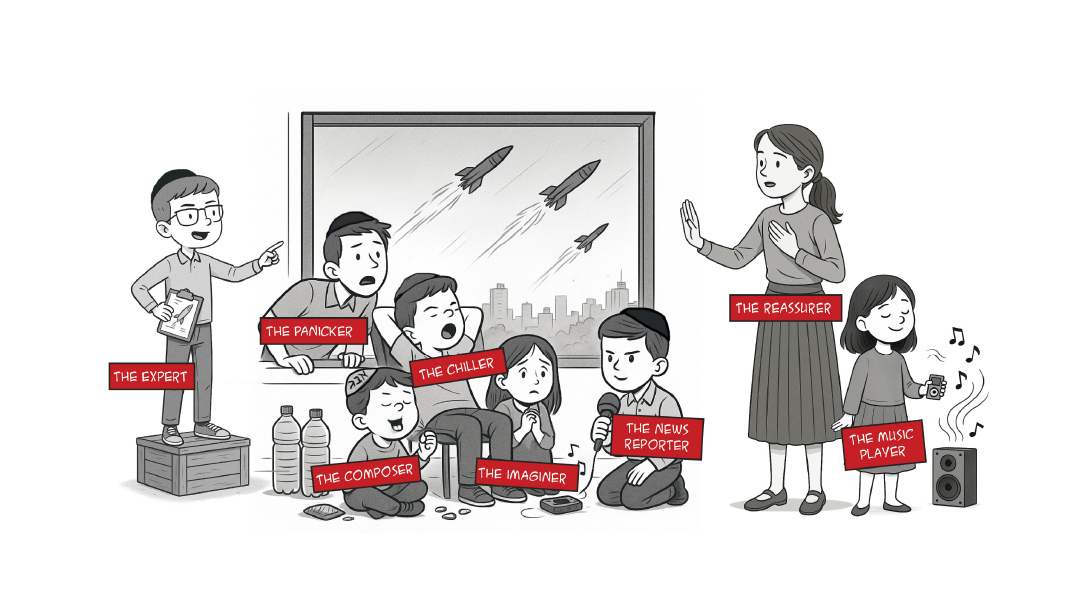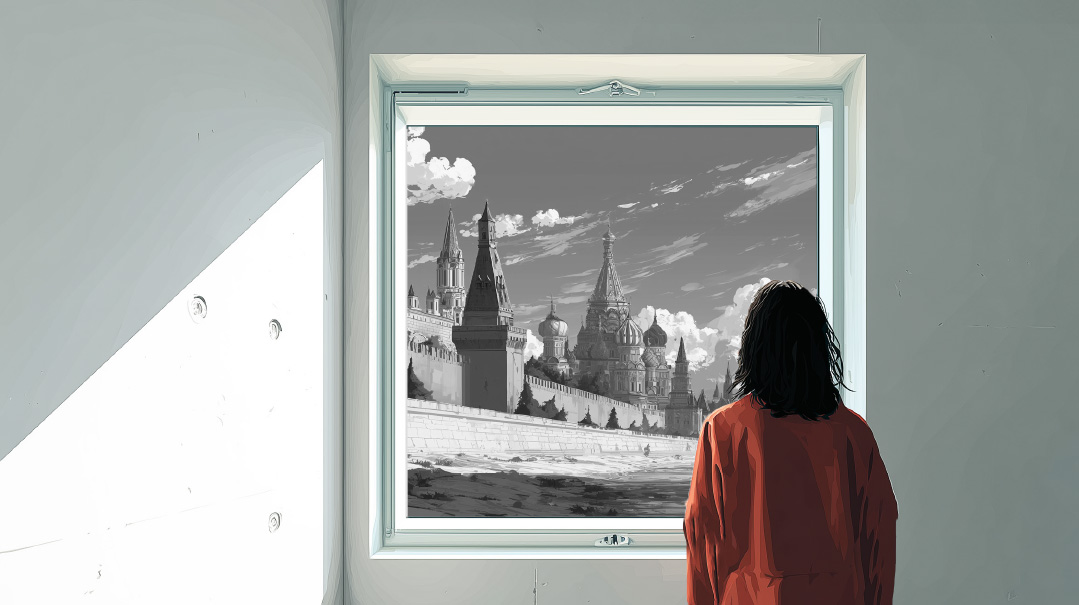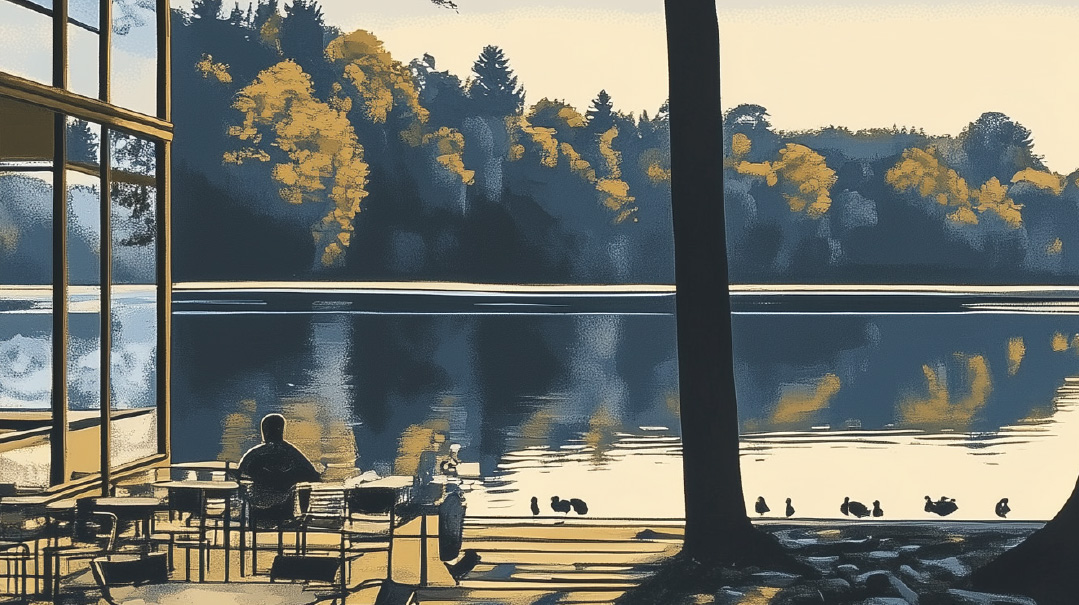We Will Return to Our Borders
| May 21, 2024We thought we’d be safe in the North, at home.

It’s Rosh Chodesh Iyar, and I’m packing again. Again.
Weekday clothes, Shabbos clothes. Summer? Winter? I forget where we’re up to.
The last seven months have been a haze of packing and packing and packing. I can’t even say I’ve ever properly unpacked.
There’s a war raging in Gaza. A prolonged, difficult, impossible war. A war where we try to decapitate a monster that grows new heads every time we turn around.
And yet. The south of Israel shows small signs of regrowth after the evil razed it, razed us to the ground. Families are returning to Ashkelon, to Sderot, even to the Gaza Envelope.
See?
We will never let them win. We will never surrender. We’ll replant our seeds, rebuild our homes.
But what of me? And my husband? And the members of our community up in the Galil, sent into an exile with no end date? How can we replant seeds and rebuild homes that haven’t been destroyed?
We were in the center of Israel on Simchas Torah. When the tales of horror and terror reached us, our first thoughts were to get home. Sirens blared in Tel Aviv, in Jerusalem, in Beitar. We thought we’d be safe in the North, at home.
And then the rumors started; picked up speed.
Hezbollah, Lebanon, Iran. The IDF is mobilizing more troops to the North than it is to the South.
We were far from being safe.
At our age, traveling is no small feat. But to stay? We have no safe room, nowhere to shelter in case of a siren. We definitely can’t run anywhere. My husband’s mobility is impaired, and getting quickly to safety could be a serious risk for both of us.
We’ve been blessed with a large family of children, grandchildren, and great-grandchildren who live throughout Israel and who all told us to leave, to get out of what could become a war zone.
Leave, they begged. So we left. It was the middle of Cheshvan, and we were sure we’d be home for Chanukah.
Where to?
This was no official evacuation from a danger zone; there were no government instructions, no funding, no organizations for assistance. We left because we were frightened, but that didn’t count for any benefits.
We were on our own… but not exactly. We were so grateful for our family! We’d figure it out.
First, we stayed with one of our daughters in Jerusalem for a week that stretched into a month, and then two. We tried not to get in the way, which was a challenge. The children were home from school, bored, and scared with the occasional siren.
There was nothing I could do to make myself useful. I peeled potatoes. Cooked rice. But it wasn’t my kitchen, and I wasn’t used to it. Most of the time I sat on the couch, reading or saying Tehillim.
I couldn’t sleep; the news sent me into panic. Every code red alert I heard about in the North made my heart jump as I calculated where it might have caught us had we been there. The momentary relief I felt at being too far away dissipated quickly. Was there a direct hit anywhere? How close?
I spent my days tormenting myself. Here? Or there? Safety? Or comfort?
I wanted to go home, to do all the things I was used to. To go to the small makolet for milk and bread. To chat to my friends and neighbors, attend the occasional shiur.
I felt rootless, rummaging through my suitcase, like a refugee. I wore the same clothes over and over again, because traveling home again was expensive and uncertain. And frightening. Things were relatively safe here in Jerusalem. What if we went home and got caught in a siren?
Then I spoke to friends who were worse off than I, who were renting dinky little underground studio apartments out of pocket, who were staying in noisy hotels filled to overflow with homeless people. Homeless. Because that’s what we all were.
And again, I reminded myself to be grateful for what we did have.
When I felt that we had overstayed our welcome, we moved to another daughter’s home in Tel Aviv. But we had a Shabbos with sirens, and there were issues with accessible minyanim for my husband. We zipped up our suitcases and moved again.
Three days with our son, but their apartment is so small, and bli ayin hara… the children. Healthy and rambunctious and too noisy for our ears.
Home, let’s go home. It was Shevat; it had turned cold, and I needed my warm clothes.
We went home.
What milk and bread? Shoshana at the makolet explained it to me — with so many of the community members gone, the milk and bread companies wouldn’t deliver daily. The makolet was open for two hours every morning… and that’s it.
A shiur? The rav had left, too. There was a bare minyan for Shacharis.
What friends, what neighbors? My home was in a ghost town. Winter nights fell and the streets weren’t just silent, they breathed danger and whispered peril.
Three days, four. Ten days and the news got worse. Drones from Lebanon. Threats from Iran. Massive troop deployment.
We needed to go. But where to this time?
A daughter found us a small apartment near her. Near an accessible shul. It had been rented as an office, but they could find beds. A makeshift closet. Laundry? I would take my things over to her. A kitchen table, plastic chairs.
We relished the safety and privacy at first. But after a week, two weeks, I was going out of my mind with nothing to do, nothing to see. No windows. No gas range, no oven. Only a small counter to make salads, a tiny refrigerator.
Just a little bit longer, we told ourselves.
We traveled here and there for Shabbos. Our children sent in meals, came to visit.
Life was normal, so normal, for everyone around us. No sirens. Stores that were open full-time. School. People asked me where I’m from, and I was shocked each time at their shock. At their oblivion.
From the North? Really? Why? When will you go home?
Back home, I used to wake up with the birds. I sat on my balcony and davened. I went down to buy bread, fresh off the truck. Picked the newspaper out of our mailbox and went home to read it over coffee. Made breakfast for my husband and myself. Made lists, cooked dinner, put on a load, went out with a friend.
I have a family, for which I’m grateful. I have safety, for which I am everlastingly, eternally grateful — after the events that threw our country into turmoil, I will never minimize that.
But a home?
So I’m packing again. To go back into what may be a danger zone, maybe for a week, or two, who knows?
For now, I need to go home.
And I pray for everyone, v’shavu banim ligevulam.
So that we can all go home.
(Originally featured in Family First, Issue 894)
Oops! We could not locate your form.







